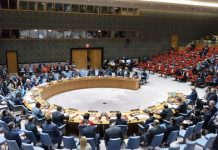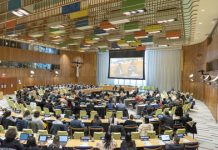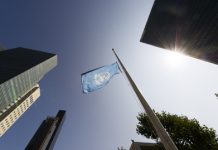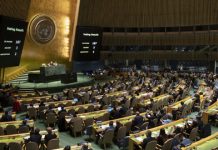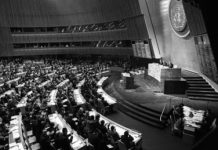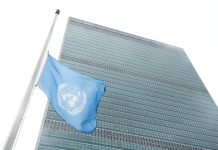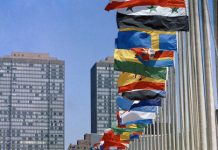The findings come in the Secretary-General’s latest annual report on women, peace, and security.
The rise in death and violence is “taking place against a backdrop of increasing blatant disregard of international law designed to protect women and children during war,” according to UN Women, the lead agency on the report.
Paying the price
The UN recorded at least 33,443 civilian deaths in armed conflicts in 2023, representing a 72 per cent increase compared with 2022, and the proportion of women and children killed doubled and tripled, respectively.
The majority of recorded deaths, 70 per cent, occurred in the Occupied Palestinian Territory and Israel – the deadliest conflict for civilians in 2023.
Women in war zones are also increasingly suffering from restricted access to healthcare, the report said.
For example, every day, 500 women and girls in conflict-affected countries die from complications related to pregnancy and childbirth. By the end of 2023, 180 women were giving birth every day in war-torn Gaza—most without necessities or medical care.
“Women continue to pay the price of the wars of men,” said Sima Bahous, Executive Director of UN Women.
“This is happening in the context of a larger war on women. The deliberate targeting of women’s rights is not unique to conflict-affected countries but is even more lethal in those settings.”
The inclusion of women in political processes will benefit all Sudanese people, the UN says.
No women, no peace
The report comes nearly 25 years after the UN Security Council adopted a landmark resolution on women, peace and security.
Resolution 1325 (2000) recognized women’s vital contribution to the prevention and resolution of conflicts. It called for warring parties to ensure the safety of women and girls, and for women’s full involvement in peace processes.
Yet despite commitments made over the years, women comprised less than 10 per cent of negotiators in more than 50 peace processes worldwide in 2023. This is occurring even though studies show that when women are involved, peace agreements last longer and are better implemented.
Severe funding shortfalls
For example, in Yemen, women-led negotiations resulted in safe access to a water source for civilians. In Sudan, 49 women-led organizations are pushing for a more inclusive peace process. However, these efforts are largely unsupported or unrecognized in formal peace negotiations.
The report noted that one of the key challenges is severe lack of funding. While global military expenditures reached a record $2.44 trillion in 2023, funding for organizations and movements that support women’s rights average just 0.3 per cent of total aid annually.
Furthermore, investments in gender-based violence prevention and response make up less than one per cent of all humanitarian spending.
Bold action required
The report contains eight recommendations to advance women’s role in peace and security. They include setting an initial minimum target for women to comprise one-third of participants in mediation and peace processes, and ultimately reaching parity with men.
It concludes that only through bold political action and increased funding will women’s equal and meaningful participation in peace and security become a reality, which is essential for achieving lasting peace.
Source of original article: United Nations (news.un.org). Photo credit: UN. The content of this article does not necessarily reflect the views or opinion of Global Diaspora News (www.globaldiasporanews.net).
To submit your press release: (https://www.globaldiasporanews.com/pr).
To advertise on Global Diaspora News: (www.globaldiasporanews.com/ads).
Sign up to Global Diaspora News newsletter (https://www.globaldiasporanews.com/newsletter/) to start receiving updates and opportunities directly in your email inbox for free.





